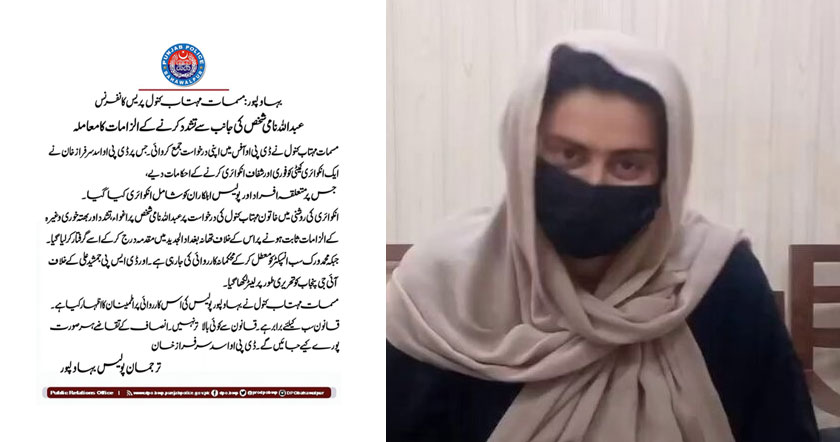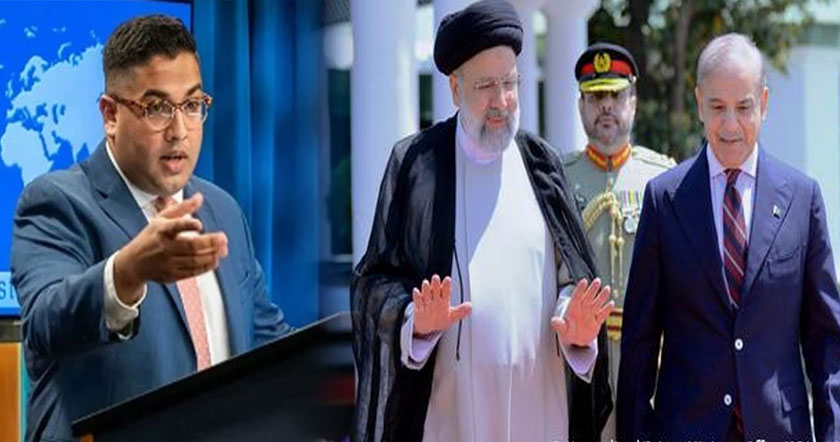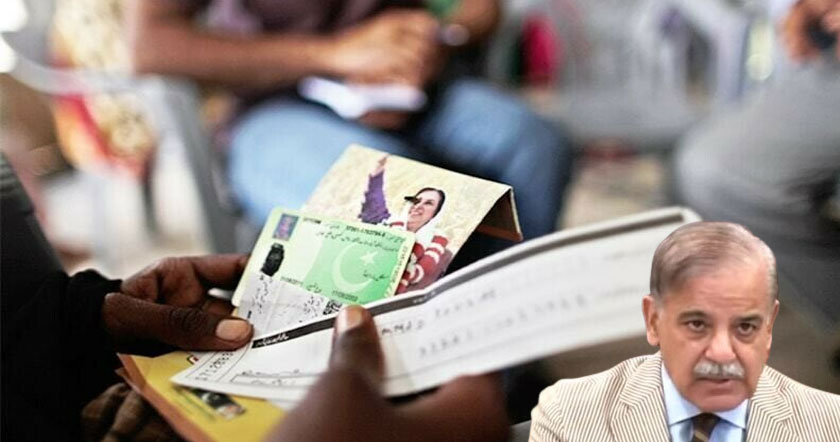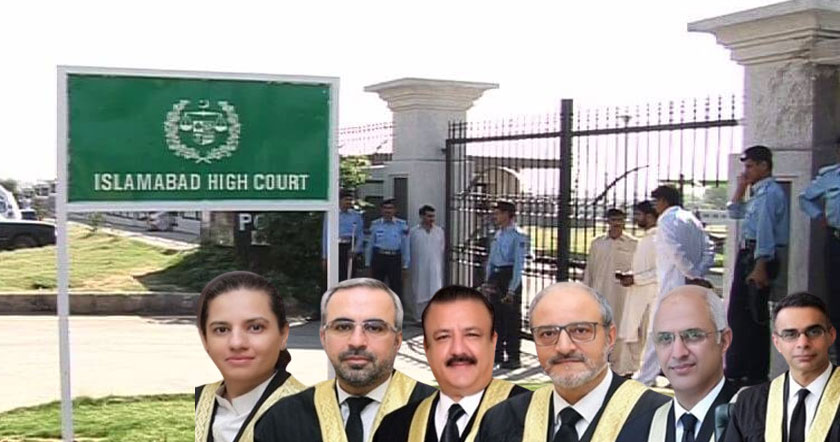You are using an out of date browser. It may not display this or other websites correctly.
You should upgrade or use an alternative browser.
You should upgrade or use an alternative browser.
The Saudi Royals Money Making Schemes
- Thread starter awan4ever
- Start date
-
- Tags
- royal family saudi
- Status
- Not open for further replies.
such bolo
Chief Minister (5k+ posts)
Mein Barailvi nahin hoon mein sirf Musalmaan hoon tumhari tasalli keh liey. Mein Quran aur Hadees ko maanta hoon na keh Barailvi wagera ko.
saheeh muslim ki hadeeth ager tumharey nazdeek saheeh nahi tu tumsey baat kerna fozool hai...tum apni islah kero...ager tum mien saheeh muslim ki hadeeth ko reject kerney ki himmet hai tu tumhien dalail dene ka koi faida nahi...i dont want to discuss with you any more....
saheeh muslim ki hadeeth ager tumharey nazdeek saheeh nahi tu tumsey baat kerna fozool hai...tum apni islah kero...ager tum mien saheeh muslim ki hadeeth ko reject kerney ki himmet hai tu tumhien dalail dene ka koi faida nahi...i dont want to discuss with you any more....
Zaeef Hadeeson ko apne liey bana keh batana sakht gunah hai. Tauba karlo aakhirat bhi aani hai. Mein ne tumhe itni saari Hadees batain magar tumhare paas is ke ilawa aur koi jawab nahin ke ek zaeef Hadees baar baar post karo aur usi par jhot bolte raho. Tauba karlo mere bhai.
Tumne ek zaeef Hadees aur najdion ko bachane ki khatir itni saari sahih hadees ka mazaaq uraya. Tauba kar lena mere bhai.
Pakistani1947
Chief Minister (5k+ posts)
Narrated Ibn 'Umar: (The Prophet) said, "O Allah! Bless our Sham and our Yemen." People said, "Our Najd as well." The Prophet again said, "O Allah! Bless our Sham and Yemen." They said again, "Our Najd as well." On that the Prophet said, "There will appear earthquakes and afflictions, and from there will come out the side of the head of Satan." (Sahih Bukhari, Book #17, Hadith #147)
Linguistic meaning of Najd (نجد) is pad, upholster, or stuffing, a place which is lifted and raised. In the time of prophet (SAW) there were many Najds which are listed below,
Najd Yamen
Najd Iraq
Najd Khal (خال)
Najd Kabkab (كبكب)
Najd Muraba’ (مربع)
Najd Shari’ (شريع)
Najd Ulose (علوز)
Najd Hijaz (حجاز)
Najd Iqab (عقاب)
Let us see which part of east or Najd appeared affliction from and what companions of prophet (صلی اللہ علیہ وآلہ وسلم) understood. Najd of Yamen these days is Najd of Saudi Arabia.
Ibn Fudail reported on the authority of his father that he heard Salim b. 'Abdullah b. 'Umar as saying: O people of Iraq, how strange it is that you ask about the minor sins but commit major sins? I heard from my father 'Abdullah b. 'Umar, narrating that he heard Allah's Messenger (may peace be upon him) as saying while pointing his hand towards the east: Verily. the turmoil would come from this side, from where appear the horns of Satan and you would strike the necks of one another; and Moses killed a person from among the people of Pharaoh unintentionally and Allah, the Exalted and Glorious, said:" You killed a person but We relieved you from the grief and tried you with (many a) trial" (xx. 40). Ahmad b. Umar reported this hadith from Salim, but he did not make a mention of the words:" I heard". (Sahih Muslim, Book #041, Hadith #6943)
Al-Hassan said that prophet (SAW) said: “O Allah! Bestow Your blessings on our Madina (city)” – “O Allah! Bestow Your blessings on our Sham” – “O Allah! Bestow Your blessings on our Yemen”. A person said: “O Messenger of Allah how about Iraq there in our needs”. He (SAW) kept silent. That person repeated same. He (SAW) kept silent and said: “there comes out the side of the head of Satan and there earthquakes and afflictions”. (Kanz al-Ummal, Vol 8, pg-16)
Let us have some sight over history and see where the most afflictions appeared. It was Iraq indeed.
1- Rawafidhs (Shias) arose from Iraq.
2- Khariji (خارجى) came from Iraq.
3- Hajmiah (جحمية) group
4- Mo’tazilah (معتزلة) group
5- Sofis
6- Battle of Jamal.
7- Muslim bin Aqil was killed in Iraq.
8- Hussein (RA) was martyred in Iraq. Those who requested him to come to Iraq left him alone without any help from them.
Linguistic meaning of Najd (نجد) is pad, upholster, or stuffing, a place which is lifted and raised. In the time of prophet (SAW) there were many Najds which are listed below,
Najd Yamen
Najd Iraq
Najd Khal (خال)
Najd Kabkab (كبكب)
Najd Muraba’ (مربع)
Najd Shari’ (شريع)
Najd Ulose (علوز)
Najd Hijaz (حجاز)
Najd Iqab (عقاب)
Let us see which part of east or Najd appeared affliction from and what companions of prophet (صلی اللہ علیہ وآلہ وسلم) understood. Najd of Yamen these days is Najd of Saudi Arabia.
Ibn Fudail reported on the authority of his father that he heard Salim b. 'Abdullah b. 'Umar as saying: O people of Iraq, how strange it is that you ask about the minor sins but commit major sins? I heard from my father 'Abdullah b. 'Umar, narrating that he heard Allah's Messenger (may peace be upon him) as saying while pointing his hand towards the east: Verily. the turmoil would come from this side, from where appear the horns of Satan and you would strike the necks of one another; and Moses killed a person from among the people of Pharaoh unintentionally and Allah, the Exalted and Glorious, said:" You killed a person but We relieved you from the grief and tried you with (many a) trial" (xx. 40). Ahmad b. Umar reported this hadith from Salim, but he did not make a mention of the words:" I heard". (Sahih Muslim, Book #041, Hadith #6943)
Al-Hassan said that prophet (SAW) said: “O Allah! Bestow Your blessings on our Madina (city)” – “O Allah! Bestow Your blessings on our Sham” – “O Allah! Bestow Your blessings on our Yemen”. A person said: “O Messenger of Allah how about Iraq there in our needs”. He (SAW) kept silent. That person repeated same. He (SAW) kept silent and said: “there comes out the side of the head of Satan and there earthquakes and afflictions”. (Kanz al-Ummal, Vol 8, pg-16)
Let us have some sight over history and see where the most afflictions appeared. It was Iraq indeed.
1- Rawafidhs (Shias) arose from Iraq.
2- Khariji (خارجى) came from Iraq.
3- Hajmiah (جحمية) group
4- Mo’tazilah (معتزلة) group
5- Sofis
6- Battle of Jamal.
7- Muslim bin Aqil was killed in Iraq.
8- Hussein (RA) was martyred in Iraq. Those who requested him to come to Iraq left him alone without any help from them.
Last edited:
Narrated Ibn 'Umar: (The Prophet) said, "O Allah! Bless our Sham and our Yemen." People said, "Our Najd as well." The Prophet again said, "O Allah! Bless our Sham and Yemen." They said again, "Our Najd as well." On that the Prophet said, "There will appear earthquakes and afflictions, and from there will come out the side of the head of Satan." (Sahih Bukhari, Book #17, Hadith #147)
Linguistic meaning of Najd (نجد) is pad, upholster, or stuffing, a place which is lifted and raised. In the time of prophet (SAW) there were many Najds which are listed below,
Najd Yamen
Najd Iraq
Najd Khal (خال)
Najd Kabkab (كبكب)
Najd Muraba’ (مربع)
Najd Shari’ (شريع)
Najd Ulose (علوز)
Najd Hijaz (حجاز)
Najd Iqab (عقاب)
Let us see which part of east or Najd appeared affliction from and what companions of prophet (صلی اللہ علیہ وآلہ وسلم) understood. Najd of Yamen these days is Najd of Saudi Arabia.
Ibn Fudail reported on the authority of his father that he heard Salim b. 'Abdullah b. 'Umar as saying: O people of Iraq, how strange it is that you ask about the minor sins but commit major sins? I heard from my father 'Abdullah b. 'Umar, narrating that he heard Allah's Messenger (may peace be upon him) as saying while pointing his hand towards the east: Verily. the turmoil would come from this side, from where appear the horns of Satan and you would strike the necks of one another; and Moses killed a person from among the people of Pharaoh unintentionally and Allah, the Exalted and Glorious, said:" You killed a person but We relieved you from the grief and tried you with (many a) trial" (xx. 40). Ahmad b. Umar reported this hadith from Salim, but he did not make a mention of the words:" I heard". (Sahih Muslim, Book #041, Hadith #6943)
Al-Hassan said that prophet (SAW) said: “O Allah! Bestow Your blessings on our Madina (city)” – “O Allah! Bestow Your blessings on our Sham” – “O Allah! Bestow Your blessings on our Yemen”. A person said: “O Messenger of Allah how about Iraq there in our needs”. He (SAW) kept silent. That person repeated same. He (SAW) kept silent and said: “there comes out the side of the head of Satan and there earthquakes and afflictions”. (Kanz al-Ummal, Vol 8, pg-16)
Let us have some sight over history and see where the most afflictions appeared. It was Iraq indeed.
1- Rawafidhs (Shias) arose from Iraq.
2- Khariji (خارجى) came from Iraq.
3- Hajmiah (جحمية) group
4- Mo’tazilah (معتزلة) group
5- Sofis
6- Battle of Jamal.
7- Muslim bin Aqil was killed in Iraq.
8- Hussein (RA) was martyred in Iraq. Those who requested him to come to Iraq left him alone without any help from them.
You cannot hide the truth by quoting same contradictory Hadees again and again. Lets read another Hadees of Sahih Bukhari and find out the relation between Kharji and Bani Tamim.
Banu Tamim and the Khawarij
Perhaps the best-known of any hadith about a Tamimite, which again draws our attention to their misplaced zeal, is the hadith of Dhu’l-Khuwaysira:
Abu Sa‘id al-Khudri (r.a.) said: ‘We were once in the presence of Allah’s Messenger (s.w.s.) while he was dividing the spoils of war. Dhu’l-Khuwaysira, a man of the Tamim tribe, came up to him and said: “Messenger of Allah, be fair!” He replied: “Woe betide you! Who will be fair if I am not? You are lost and disappointed if I am not fair!” And Umar (r.a.) said, “Messenger of Allah! Give me permission to deal with him, so that I can cut off his head!” But he said: “Let him be. And he has companions. One of you would despise his prayer in their company, and his fast in their company. They recite the Qur’an but it goes no further than their collarbones. They pass through religion as an arrow passes through its target.”’ Abu Sa‘id continued: ‘I swear that I was present when Ali ibn Abi Talib fought against them. He ordered that that man be sought out, and he was brought to us.’ (Bukhari, Manaqib, 25).
This hadith is taken by the exegetes as a prophecy, and a warning, about the nature of the Kharijites. There is a certain type of believing zealot who goes into religion so hard that he comes out the other side, with little or nothing of it remaining with him. One expert who confirms this is the Hanbali scholar Ibn al-Jawzi, well-known for his hagiographies of Ma‘ruf al-Karkhi and Rabi‘a al-Adawiya. In his book Talbis Iblis. (Beirut, 1403, p.88) under the chapter heading ‘A Mention of the Devil’s Delusion upon the Kharijites’ he narrates the hadith, and then writes: ‘This man was called Dhu’l-Khuwaysira al-Tamimi. [...] He was the first Kharijite in Islam. His fault was to be satisfied with his own view; had he paused he would have realised that there is no view superior to that of Allah’s Messenger (s.w.s.).’
Ibn al-Jawzi goes on to document the development of the Kharijite movement, and the central role played by the tribe of Tamim in it. Hence (p.89) ‘The commander of the fight [against the Sunnis, at Harura] was Shabib ibn Rab‘i al-Tamimi’; also (p.92) ‘Amr ibn Bakr al-Tamimi agreed to murder Umar’. All this even though their camp sounded like a beehive, so assiduously were they reciting the Qur’an (p.91).
The Kharijite movement proper commenced at the Siffin arbitration, when the first dissenters left the army of the khalifa Ali (k.A.w.). One of them was Abu Bilal Mirdas, a member of the tribe of Tamim (Ibn Hazm, 223), who despite his constant worship and recitation of the Qur’an became one of the most brutal of the Kharijite zealots. He is remembered as the first who said the Tahkim - the formula ‘The judgment is Allah’s alone’ - on the Day of Siffin, which became the slogan of the later Kharijite da‘wa.
In his long analysis of the Kharijite movement, Imam Abd al-Qahir al-Baghdadi also describes the intimate involvement of Tamimites, and of Central Arabians generally, noting that the tribes of Yemen and Hijaz contributed hardly anyone to the Kharijite forces. He gives an account of Dhu’l-Khuwaysira’s later Kharijite activities. Appearing before Imam Ali ibn Abi Talib (k.A.w.) he says: ‘Ibn Abi Talib! I am only fighting you for the sake of Allah and the Hereafter!’ to which Imam Ali replies: ‘Nay, you are like those of whom Allah says, “Shall I inform you who are the ones whose works are most in loss? It is they whose efforts are astray in the life of this world, but who think that they are doing good!” [Kahf, 103].’ (Imam Abd al-Qahir al-Baghdadi, al-Farq bayn al-firaq [Cairo, n.d.], 80; see the note to p.76 for the full identification of Dhu’l-Khuwaysira.)
As Imam Abd al-Qahir gives his account of the early Kharijite rebellions, replete with appalling massacres of innocent Muslim civilians, he makes it clear that the leaders of each of the significant Kharijite movements hailed from Najd. For instance, the Azariqa, one of the most vicious and widespread Khariji movements, were led by Nafi‘ ibn al-Azraq, who was from the Central Arabian tribe of Banu Hanifa (Abd al-Qahir, 82). As the Imam records, ‘Nafi and his followers considered the territory of those who opposed them to be Dar al-Kufr, in which one could slaughter their women and children. [...] They used to say: “Our opponents are mushriks, and hence we are not obliged to return anything we hold in trust to them.’ (Abd al-Qahir, 84.) After his death in battle, ‘the Azariqa pledged their allegiance to Ubaydallah ibn Ma’mun al-Tamimi. Al-Muhallab then fought them at Ahwaz, where Ubaidallah ibn Ma’mun himself died, along with his brother Uthman ibn Ma’mun and three hundred of the most fanatical of the Azariqa. The remainder retreated to Aydaj, where they pledged their allegiance to Qatari ibn al-Fuja’a, whom they called Amir al-Mu’minin.’ (Abd al-Qahir, 85-6.) The commentator to Abd al-Qahir’s text reminds us that Ibn Fuja’a was also of Tamim (p.86).
The Azariqa, who massacred countless tens of thousands of Muslims who refused to accept their views, had a rival in the Najdiyya faction of the Kharijites. These were named after Najda ibn Amir, a member of the tribe of Hanifa whose homeland is Najd; Najda himself maintained his army in Yamama, which is part of Najd. (Abd al-Qahir, 87.)
As is the way with Kharijism in all ages, the Najdiyya fragmented amid heated arguments generated by their intolerance of any dissent. The causes of this schism included the Kharijite attack on Madina, which came away with many captives; and different Kharijite ijtihads over sexual relations with Muslim women who, not being Kharijites, they had enslaved. Three major factions emerged from this split, the most dangerous of which was led by Atiyya ibn al-Aswad, again of the tribe of Hanifa. Following Najda’s death, his own faction split, again into three, one of which left Najd to raid the vicinity of Basra (Abd al-Qahir, 90-1).
The last major Kharijite sect was the Ibadiyya, which, in a gentler and much attenuated form, retains a presence even today in Zanzibar, southern Algeria, and Oman. The movement was founded by Abdallah ibn Ibad, another Tamimi. Its best-known doctrine is that non-Ibadis are kuffar: they are not mu’mins, but they are not mushriks either. ‘They forbid secret assassinations [of non-Ibadis], but allow open battles. They allow marriages [with non-Ibadis], and inheritance from them. They claim that all this is to aid them in their war for Allah and His Messenger.’ (Abd al-Qahir, 103.)
The best-known woman among the Kharijites was Qutam bint ‘Alqama, a member of the Tamimite tribe. She is remembered as the one who told her bridegroom, Ibn Muljam, that ‘I will only accept you as my husband at a dowry which I myself must name, which is three thousand dirhams, a male and a female slave, and the murder of Ali!’ He asked, ‘You shall have all that, but how may I accomplish it?’ and she replied, ‘Take him by surprise. If you escape, you will have rescued the people from evil, and will live with your wife; while if you die in the attempt, you will go on to the Garden and a delight that shall never end!’ (Mubarrad, 27.) As is generally known, Ibn Muljam was executed after he stabbed Hazrat Ali r.a to death outside the mosque in Kufa.
Muslims anxious not to repeat the tragic errors of the past will wish to reflect deeply upon this pattern of events. Tens of thousands of Muslims, fervently committed to the faith and outstanding for their practical piety, nonetheless fell prey to the Kharijite temptation. The ulema trace the origins of that temptation back to the incident of Dhu’l-Khuwaysira, who considered himself a better Muslim than the Prophet himself (s.w.s.). And he, like the overwhelming majority of the Kharijite leaders who followed in his footsteps, was a Tamimi. Of the non-Tamimi Kharijites, almost all were from Najd.
Pakistani1947
Chief Minister (5k+ posts)
The Prince Talal is corrupt and living lavish life, he is responsible for his acts in front of Allah. But it does not mean that since Saudi rulers are is not allowing Sufi cult's Shirkia activities in their land, the Pakistani Sufis can continue with their Shirkia acts in Pakistan.
Pakistani1947
Chief Minister (5k+ posts)
Mushrikana Hajj in Pakistan
Saudi rulers may have human weaknesses but the SHIRK being done in Pakistan is the worst sin where there is no forgiveness from Allah:
Let's what Sufi cult want to see the future of Pakistan:
The Pakistani Sufi cult hates Saudi cult not because of their lavish life style but because they do not allow Pakistani Sufi Cult to continue their Shirkia activities in Saudi Arabia. Insha-Allh these Sufi will keep on burning inside as Allah will never allow these SHIRK in Holly Land (Insh-Allah). They will keep on doing Matam (Insha-Allah)
Saudi rulers may have human weaknesses but the SHIRK being done in Pakistan is the worst sin where there is no forgiveness from Allah:
Let's what Sufi cult want to see the future of Pakistan:
The Pakistani Sufi cult hates Saudi cult not because of their lavish life style but because they do not allow Pakistani Sufi Cult to continue their Shirkia activities in Saudi Arabia. Insha-Allh these Sufi will keep on burning inside as Allah will never allow these SHIRK in Holly Land (Insh-Allah). They will keep on doing Matam (Insha-Allah)
Last edited:
The Ridda: the First Fitna
There is a further issue which Muslims will wish to consider when forming their view of Najd. This is the attitude of the Najdis following the death of the Messenger (s.w.s.). The historians affirm that the great majority of the rebellions against the payment of zakat which broke out during the khilafa of Abu Bakr (r.a.) took place among Najdis. Moreoever, and even more significantly, many of the the Najdi rebellions were grounded in a strange anti-Islamic ideology. The best-known of these was led by Musaylima, who claimed to be a prophet, and who established a rival shari‘a which included quasi-Muslim rituals such as forms of fasting and dietary rules. He followed the Islamic prayer rules, but abolished the Fajr and the Isha prayers. One of his so-called ‘revelations’ ran:
There is a further issue which Muslims will wish to consider when forming their view of Najd. This is the attitude of the Najdis following the death of the Messenger (s.w.s.). The historians affirm that the great majority of the rebellions against the payment of zakat which broke out during the khilafa of Abu Bakr (r.a.) took place among Najdis. Moreoever, and even more significantly, many of the the Najdi rebellions were grounded in a strange anti-Islamic ideology. The best-known of these was led by Musaylima, who claimed to be a prophet, and who established a rival shari‘a which included quasi-Muslim rituals such as forms of fasting and dietary rules. He followed the Islamic prayer rules, but abolished the Fajr and the Isha prayers. One of his so-called ‘revelations’ ran:
Banu Tamim is a tribe of purity,
a free people, with no fault in them,
neither do they pay a tribute.
We shall be their allies of protection,
good to them for as long as we live!
We shall protect them from everyone,
and when we die, their affair is with al-Rahman.
(Imam al-Tabari, Tarikh al-Rusul wa’l-Muluk II, 276).
a free people, with no fault in them,
neither do they pay a tribute.
We shall be their allies of protection,
good to them for as long as we live!
We shall protect them from everyone,
and when we die, their affair is with al-Rahman.
(Imam al-Tabari, Tarikh al-Rusul wa’l-Muluk II, 276).
Re: Mushrikana Hajj in Pakistan
Ghulam e Saudi have accepted their defeat. They could not defend their masters. I am laughing at you as you have no option left but to post useless videos which have nothing to do with me.
I am now going to celebrate another thumping victory over the najdis. Wassalam.
Saudi rulers may have human weaknesses but the SHIRK being done in Pakistan is the worst sin where there is no forgiveness from Allah:
Let's what Sufi cult want to see the future of Pakistan:
Ghulam e Saudi have accepted their defeat. They could not defend their masters. I am laughing at you as you have no option left but to post useless videos which have nothing to do with me.
I am now going to celebrate another thumping victory over the najdis. Wassalam.
Pakistani1947
Chief Minister (5k+ posts)
The Pre-Islamic Arabs believed in grave worship, intersession & still believed in Allah
such bolo
Chief Minister (5k+ posts)
عبد اللہ بن عمر رضی اللہ عنہ سے روایت ہے کہ رسول اللہ صلی اللہ علیہ وسلم نے فرمایا:
"
اے اللہ! ہمارے لیے مدینہ میں برکت نازل فرما اور ہمارے لیے ہمارے مکہ میں برکت نازل فرما اور ہمارے لیے ہمارے شام میں
برکت نازل فرما اور ہمارے لیے ہمارے یمن میں برکت نازل فرما اور ہمارے لیے ہمارے صاع اور مد میں برکت نازل فرما۔" ایک آدمی نے عرض کیا: " اے اللہ کے رسول صلی اللہ علیہ وسلم! اور ہمارے عراق میں بھی؟ رسول اللہ صلی اللہ علیہ وسلم نے اس سے اعراض کیا پھر فرمایا:" اس میں زلزلے اور فتنے ہوں گے اور وہاں سے شیطان کا سینگ رونما ہو گا۔"
(طبرانی کبیر:13422)
"
اے اللہ! ہمارے لیے مدینہ میں برکت نازل فرما اور ہمارے لیے ہمارے مکہ میں برکت نازل فرما اور ہمارے لیے ہمارے شام میں
برکت نازل فرما اور ہمارے لیے ہمارے یمن میں برکت نازل فرما اور ہمارے لیے ہمارے صاع اور مد میں برکت نازل فرما۔" ایک آدمی نے عرض کیا: " اے اللہ کے رسول صلی اللہ علیہ وسلم! اور ہمارے عراق میں بھی؟ رسول اللہ صلی اللہ علیہ وسلم نے اس سے اعراض کیا پھر فرمایا:" اس میں زلزلے اور فتنے ہوں گے اور وہاں سے شیطان کا سینگ رونما ہو گا۔"
(طبرانی کبیر:13422)
such bolo
Chief Minister (5k+ posts)
Re: The Pre-Islamic Arabs believed in grave worship, intersession & still believed in Allah
عبد اللہ بن عمر رضی اللہ عنہ سے روایت ہے:
"میں نے رسول اللہ صلی اللہ علیہ وسلم کو عراق کی طرف اشارہ کرتے ہوئے دیکھا (آپ صلی اللہ علیہ وسلم نے کہا): "
خبردار! بے شک فتنہ یہاں سے ہو گا، خبر دار بے شک فتنہ یہاں سے ہو گا۔ یہ بات آپ نے تین مرتبہ کہی، (پھر کہا):"یہاں سے شیطان کا سینگ نکلے گا-"
(مسند احمد:143/2)
عبد اللہ بن عمر رضی اللہ عنہ سے روایت ہے:
"میں نے رسول اللہ صلی اللہ علیہ وسلم کو عراق کی طرف اشارہ کرتے ہوئے دیکھا (آپ صلی اللہ علیہ وسلم نے کہا): "
خبردار! بے شک فتنہ یہاں سے ہو گا، خبر دار بے شک فتنہ یہاں سے ہو گا۔ یہ بات آپ نے تین مرتبہ کہی، (پھر کہا):"یہاں سے شیطان کا سینگ نکلے گا-"
(مسند احمد:143/2)
such bolo
Chief Minister (5k+ posts)
Re: The Pre-Islamic Arabs believed in grave worship, intersession & still believed in Allah
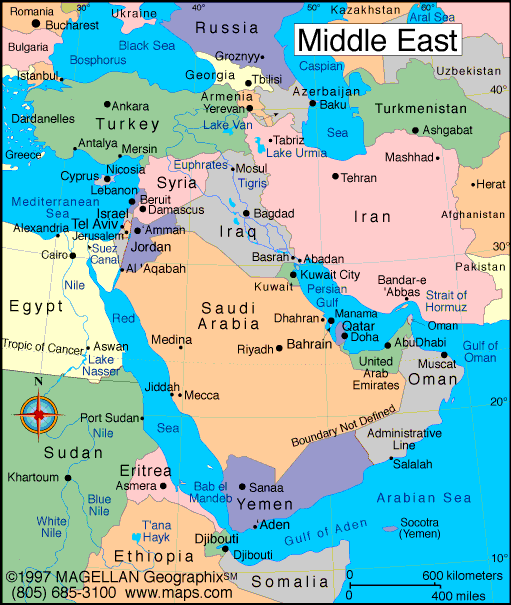
پھر جغرافیہ کے کسی بھی طالب علم سے پوچھیں کہ
Cardinal_direction
کے معروف قاعدہ کے مطابق عراق مدینہ کے
NE
شمال مشرق میں آتا ہے یا نہیں ؟؟
عزیز و محترم دوستو !
دین کی تشریح گوگل ارتھ سے نہیں ہوا کرتی !!
دین کی تشریح گوگل ارتھ سے نہیں ہوا کرتی !!
یہ تینوں روایات محدثین کی تحقیق کے مطابق "صحیح" ہیں۔
مسند احمد , المجلد الثاني , تابع مسند عبدالله بن عمر, حديث:6020
مجمع الزوائد ومنبع الفوائد ، المجلد الثالث ، باب جامع في الدعاء لها ، حدیث:5817
صحیح مسلم ، کتاب الفتن ، باب الفتنة من المشرق من حيث يطلع قرنا الشيطان ، حدیث:7481
مجمع الزوائد ومنبع الفوائد ، المجلد الثالث ، باب جامع في الدعاء لها ، حدیث:5817
صحیح مسلم ، کتاب الفتن ، باب الفتنة من المشرق من حيث يطلع قرنا الشيطان ، حدیث:7481
ان مستند روایات کے مطابق ۔۔۔۔۔
نبی کریم صلی اللہ علیہ وسلم فرما رہے ہیں کہ :
عراق ، مدینہ کے مشرق میں ہے اور مشرق فتنہ کا مرکز ہے !
نبی کریم صلی اللہ علیہ وسلم فرما رہے ہیں کہ :
عراق ، مدینہ کے مشرق میں ہے اور مشرق فتنہ کا مرکز ہے !
گوگل ارتھ کون سا جغرافیائی اصول قبول کرتا ہے؟؟ ظاہر ہے کہ وہی اصول جس کے مطابق ۔۔۔
امریکہ مغرب میں ہے
پاکستان/سعودی عرب ، مشرق میں ہے
ساؤتھ افریقہ جنوب میں ہے
الاسکا شمال میں ہے
امریکہ مغرب میں ہے
پاکستان/سعودی عرب ، مشرق میں ہے
ساؤتھ افریقہ جنوب میں ہے
الاسکا شمال میں ہے
اگر دنیا کا یہی معروف سمتی قاعدہ استعمال کیا جائے تو ۔۔۔۔۔۔ پھر کہنا پڑے گا کہ :
چونکہ مکہ اور مدینہ بھی "مشرق" میں آتے ہیں لہذا یہ بھی فتنہ کی سرزمین ہوئے۔
کیونکہ بخاری کی حدیث ہے :
راس الكفر نحو المشرق
(کفر کا سرچشمہ مشرق کی طرف ہے)
صحیح بخاری ، کتاب بدءالخلق
چونکہ مکہ اور مدینہ بھی "مشرق" میں آتے ہیں لہذا یہ بھی فتنہ کی سرزمین ہوئے۔
کیونکہ بخاری کی حدیث ہے :
راس الكفر نحو المشرق
(کفر کا سرچشمہ مشرق کی طرف ہے)
صحیح بخاری ، کتاب بدءالخلق
واضح رہے کہ اس حدیث میں مطلق لفظ "مشرق" ہے۔ "مدینہ کا مشرق" لکھا نہیں ہے۔
لہذا گوگل ارتھ استعمال کرنے والا کوئی بھی کافر بآسانی کہہ سکتا ہے کہ فتنہ کا اصل گڑھ تو مکہ اور مدینہ ہیں کیونکہ حدیث کے مطابق دونوں مشرق میں ہیں !
بتائیے اس کا کوئی جواب ہے ؟؟؟
لہذا گوگل ارتھ استعمال کرنے والا کوئی بھی کافر بآسانی کہہ سکتا ہے کہ فتنہ کا اصل گڑھ تو مکہ اور مدینہ ہیں کیونکہ حدیث کے مطابق دونوں مشرق میں ہیں !
بتائیے اس کا کوئی جواب ہے ؟؟؟
لہذا دین کو کفار کے وضع کردہ اصول و قواعد کے ذریعے سمجھنے کے بجائے بہتر ہے کہ نبی صلی اللہ علیہ وسلم اور صحابہ کرام رضی اللہ عنہم کی تشریح سے ہی سمجھا جائے۔
جب نبی کریم (صلی اللہ علیہ وسلم) نے صاف صاف فرما دیا کہ : فتنہ مشرق سے اٹھے گا (بخاری)
اور عبداللہ بن عمر رضی اللہ عنہ کہیں کہ رسول (صلی اللہ علیہ وسلم) نے یہ کہتے ہوئے عراق کی طرف اشارہ کیا تھا۔ (مسنداحمد)
تو ان تشریحات سے بڑھ کر اور کیا دلیل ہو سکتی ہے؟؟
اور عبداللہ بن عمر رضی اللہ عنہ کہیں کہ رسول (صلی اللہ علیہ وسلم) نے یہ کہتے ہوئے عراق کی طرف اشارہ کیا تھا۔ (مسنداحمد)
تو ان تشریحات سے بڑھ کر اور کیا دلیل ہو سکتی ہے؟؟
ہاں البتہ یہ حقیقت ضرور ہے کہ :
ضد کا کوئی علاج نہیں ہے !!
ضد کا کوئی علاج نہیں ہے !!

پھر جغرافیہ کے کسی بھی طالب علم سے پوچھیں کہ
Cardinal_direction
کے معروف قاعدہ کے مطابق عراق مدینہ کے
NE
شمال مشرق میں آتا ہے یا نہیں ؟؟
یقینی طور پر اس کا جواب اثبات میں ہوگا
Last edited:
History has no shortage of great empires that rose to conquer much of the world through military dominance, political maneuvering, and economic supremacy.
And due to nearly identical mistakes, the fall of these dynasties was just as grandiose as their magnanimous rise . . .
Is it possible that less than 70 years after claiming our status as empire during World War II, America is now on the cusp of an economic, political, and social crisis?
The United States is Marching in Step with
the Historic Pattern That Has Led to the
Demise of Every Great Empire in History.
- Ancient Rome, 201 BC - 476
- The Ottoman Empire, 1299 - 1923
- Spain, 1493 - 1899
- Great Britain, 1583 - 1945
- France, 1605 – 1947
And due to nearly identical mistakes, the fall of these dynasties was just as grandiose as their magnanimous rise . . .
Is it possible that less than 70 years after claiming our status as empire during World War II, America is now on the cusp of an economic, political, and social crisis?
The United States is Marching in Step with
the Historic Pattern That Has Led to the
Demise of Every Great Empire in History.
such bolo
Chief Minister (5k+ posts)
Zaeef Hadeeson ko apne liey bana keh batana sakht gunah hai. Tauba karlo aakhirat bhi aani hai. Mein ne tumhe itni saari Hadees batain magar tumhare paas is ke ilawa aur koi jawab nahin ke ek zaeef Hadees baar baar post karo aur usi par jhot bolte raho. Tauba karlo mere bhai.
Tumne ek zaeef Hadees aur najdion ko bachane ki khatir itni saari sahih hadees ka mazaaq uraya. Tauba kar lena mere bhai.
@cheeko
میں نے صحیح مسلم کی حدیث پیش کی ہے اور تم الزام لگا رہے ہو کے میں نے خودساختہ حدیث پیش کی ہے ...جبکہ میں نے حوالہ بھی درج کیا ہے
http://www.searchtruth.com/book_display.php?book=041&translator=2&start=0&number=6943#6943
Saheeh Muslim [4/1505 no.6943]
Saalim bin Abdullaah bin Umar said: O people of Iraaq, how strange is it that you ask about the minor sins but commit the major sins? [The killing of al-Husayn] I heard my father, Abdullaah bin Umar narrating that he heard the Messenger of Allaah, sallallaahu alayhi wa sallam, saying while pointing his hand to the east: "Indeed the turmoil would come from this side, from where appear the horns of Satan and you would strike the necks of one another..."
Arabic Text
http://hadith.al-islam.com/Page.aspx...ID=25&PID=5244
حدثنا عبد الله بن عمر بن أبان وواصل بن عبد الأعلى وأحمد بن عمر الوكيعي واللفظ لابن أبان قالوا حدثنا ابن فضيل عن أبيه قال سمعت سالم بن عبد الله بن عمر يقول يا أهل العراق ما أسألكم عن الصغيرة وأركبكم للكبيرة سمعت أبي عبد الله بن عمر يقول
 سمعت رسول الله صلى الله عليه وسلم يقول إن الفتنة تجيء من هاهنا وأومأ بيده نحو المشرق من حيث يطلع قرنا الشيطان وأنتم يضرب بعضكم رقاب بعض وإنما قتل موسى الذي قتل من - ص 2230 - آل فرعون خطأ فقال الله عز وجل له
سمعت رسول الله صلى الله عليه وسلم يقول إن الفتنة تجيء من هاهنا وأومأ بيده نحو المشرق من حيث يطلع قرنا الشيطان وأنتم يضرب بعضكم رقاب بعض وإنما قتل موسى الذي قتل من - ص 2230 - آل فرعون خطأ فقال الله عز وجل له
 وقتلت نفسا فنجيناك من الغم وفتناك فتونا
وقتلت نفسا فنجيناك من الغم وفتناك فتونا

 قال أحمد بن عمر في روايته عن سالم لم يقل سمعت
قال أحمد بن عمر في روايته عن سالم لم يقل سمعت
میں نے سارے لینکس بھی دیدیئے ہیں کوئی بھی انٹرنیٹ سرچ کر کے ان حوالوں کی تصدیق کر سکتا ہے....اب یا تو تم یہ کہو کے تم صحیح مسلم کی حدیث کو صحیح نہیں مانتے جبکے اہل سنہ کے تمام علما کا صحیح مسلم اور صحیح بخاری پر اتفاق ہے کے انکی ساری حدیثیں صحیح ہیں...اگر صحیح مانتے ہو تو ثابت کرو کے میرا حوالہ غلط ہے...ورنہ یا تم جھوٹے یا میں جھوٹا...اور جو جھوٹا ثابت ہو وہ اس فورم پہ آنا چھوڑدیگا....اگر تم سچے ہو تو جواب دو
Last edited:
Poor such bolo has come back. Trying to convince that the world is round and east is every where. The world is not round as it is slightly oval shaped. I am laughing at him.
How will you deny those Hadees in which the names of the tribes r told. I am laughing at him. Any neutral reader can read and judge how the najdis have to twist things to prove themselves right.
[Sahih Bukhari Volume 9, Book 92, Number 443]
Narrated ‘Abdullah bin Dinar:
Ibn ‘Umar said, “The Prophet fixed Qarn as the Miqat (for assuming the Ihram) for the people of Najd, and Al-Juhfa for the people of Sham, and Dhul-Hulaifa for the people of Medina.” Ibn ‘Umar added, “I heard this from the Prophet, and I have been informed that the Prophet said, ‘The Miqat for the Yemenites is Yalamlam.’ “When Iraq was mentioned, he said, “At that time it was not a Muslim country.”
///////////////////////////////////////////////////
Amr ibn Abasa said: ‘Allah’s Messenger (s.w.s.) was one day reviewing the horses, in the company of Uyayna ibn Hisn ibn Badr al-Fazari. [...] Uyayna remarked: “The best of men are those who bear their swords on their shoulders, and carry their lances in the woven stocks of their horses, wearing cloaks, and are the people of the Najd.” But Allah’s Messenger (s.w.s.) replied: “You lie! Rather, the best of men are the men of the Yemen. Faith is a Yemeni, the Yemen of [the tribes of] Lakhm and Judham and Amila. [...] Hadramawt is better than the tribe of Harith; one tribe is better than another; another is worse [...] My Lord commanded me to curse Quraysh, and I cursed them, but he then commanded me to bless them twice, and I did so [...] Aslam and Ghifar, and their associates of Juhaina, are better than Asad and Tamim and Ghatafan and Hawazin, in the sight of Allah on the Day of Rising. [...] The most numerous tribe in the Garden shall be [the Yemeni tribes of] Madhhij and Ma’kul.’ (Ahmad ibn Hanbal and al-Tabarani, by sound narrators. Cited in Ali ibn Abu Bakr al-Haythami, Majma‘ al-zawa’id wa manba‘ al-fawa’id
How will you deny those Hadees in which the names of the tribes r told. I am laughing at him. Any neutral reader can read and judge how the najdis have to twist things to prove themselves right.
[Sahih Bukhari Volume 9, Book 92, Number 443]
Narrated ‘Abdullah bin Dinar:
Ibn ‘Umar said, “The Prophet fixed Qarn as the Miqat (for assuming the Ihram) for the people of Najd, and Al-Juhfa for the people of Sham, and Dhul-Hulaifa for the people of Medina.” Ibn ‘Umar added, “I heard this from the Prophet, and I have been informed that the Prophet said, ‘The Miqat for the Yemenites is Yalamlam.’ “When Iraq was mentioned, he said, “At that time it was not a Muslim country.”
///////////////////////////////////////////////////
Amr ibn Abasa said: ‘Allah’s Messenger (s.w.s.) was one day reviewing the horses, in the company of Uyayna ibn Hisn ibn Badr al-Fazari. [...] Uyayna remarked: “The best of men are those who bear their swords on their shoulders, and carry their lances in the woven stocks of their horses, wearing cloaks, and are the people of the Najd.” But Allah’s Messenger (s.w.s.) replied: “You lie! Rather, the best of men are the men of the Yemen. Faith is a Yemeni, the Yemen of [the tribes of] Lakhm and Judham and Amila. [...] Hadramawt is better than the tribe of Harith; one tribe is better than another; another is worse [...] My Lord commanded me to curse Quraysh, and I cursed them, but he then commanded me to bless them twice, and I did so [...] Aslam and Ghifar, and their associates of Juhaina, are better than Asad and Tamim and Ghatafan and Hawazin, in the sight of Allah on the Day of Rising. [...] The most numerous tribe in the Garden shall be [the Yemeni tribes of] Madhhij and Ma’kul.’ (Ahmad ibn Hanbal and al-Tabarani, by sound narrators. Cited in Ali ibn Abu Bakr al-Haythami, Majma‘ al-zawa’id wa manba‘ al-fawa’id
- Status
- Not open for further replies.























